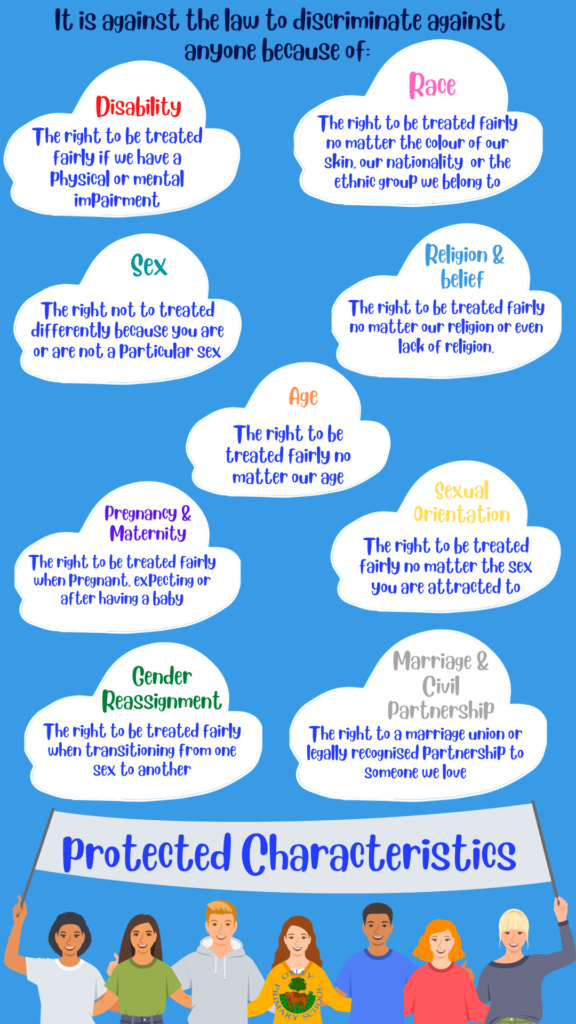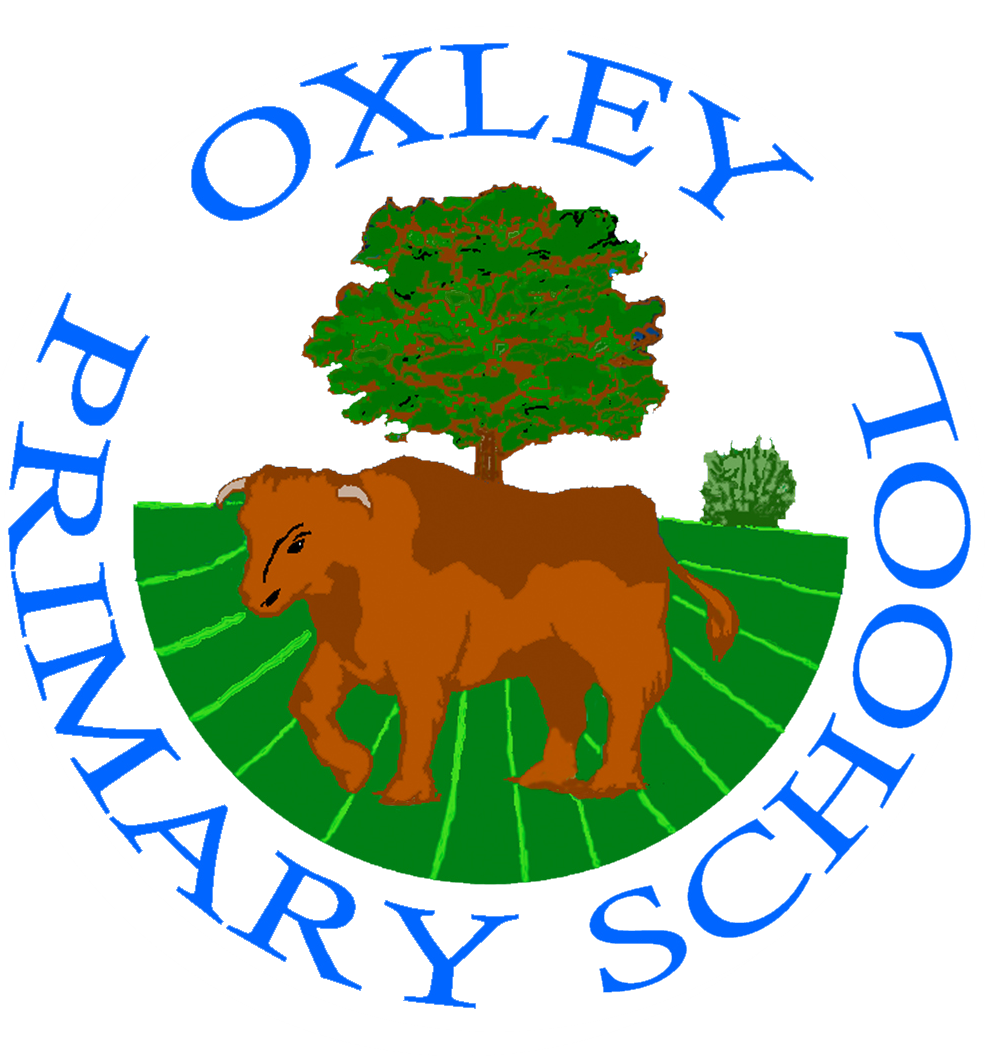We are extremely proud to announce that in June, 2023 we achieved our Gold Beyond Bullying Award!
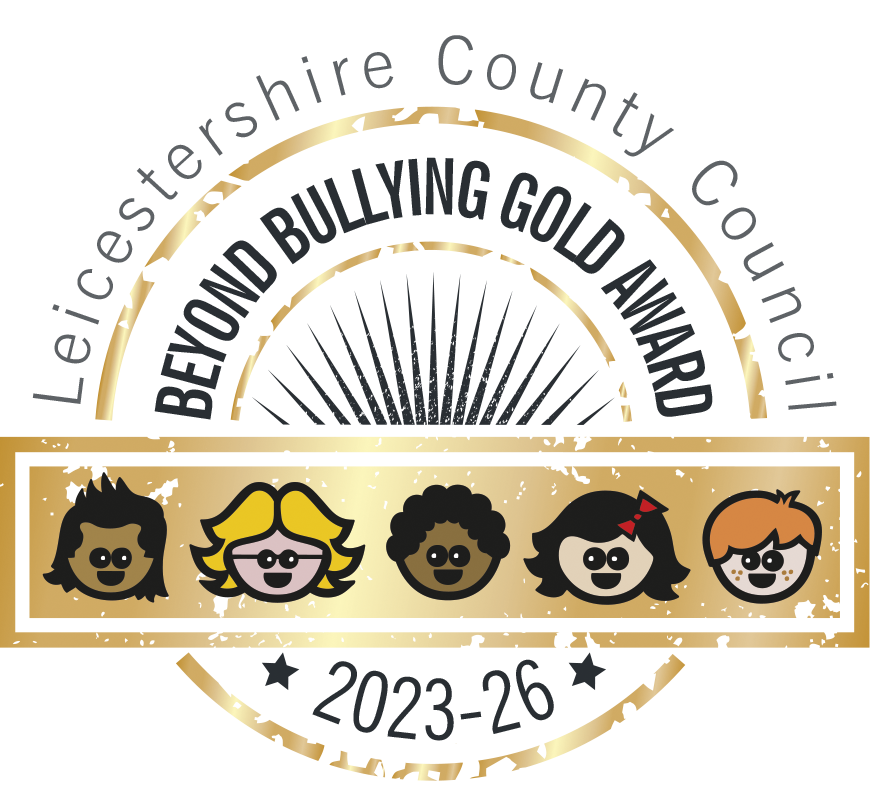
Oxley Primary School’s ethos can be summarised in three simple statements:
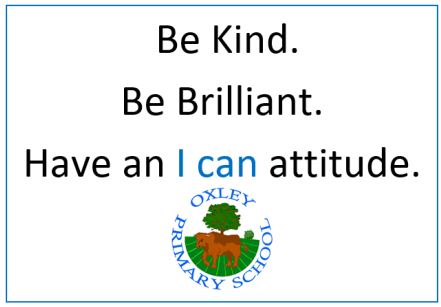
These powerful messages are also interwoven with our school rules. They aim to support the entire school community to make the most of each and every day so that we can be the best we can be.
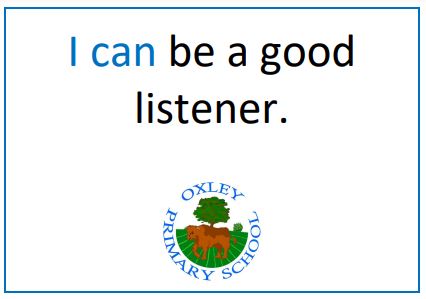

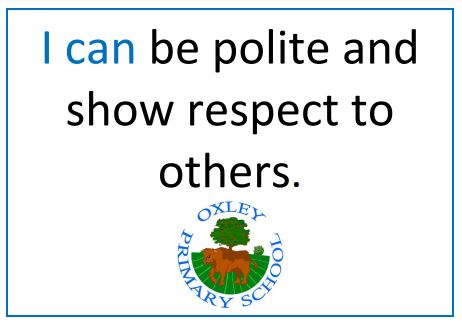
At Oxley Primary School, whilst aware that pupils may be bullied in any school or setting, we recognise that preventing, raising awareness, and consistently responding to any cases of bullying should be a priority to ensure the safety and well-being of our pupils.
Definition of Bullying
Bullying is ‘the repetitive, intentional hurting of one person or group by another person or group, where the relationship involves an imbalance of power which can happen face to face or online’. Threading through the importance of ‘Stop ‘n’ Talk’, at Oxley Primary School, staff and children also define bullying as something that happens:
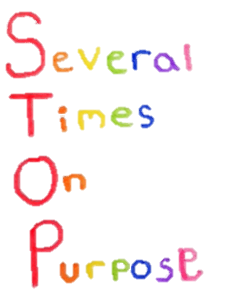
Using this definition helps children to understand the seriousness of bullying compared to other unacceptable forms of behaviour. In addition, our ‘Talk‘ acronym encourages our children to vocalise their concerns and look after one another.
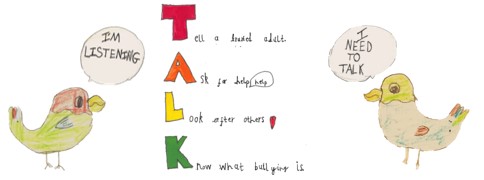
At Oxley Primary School, we regularly discuss what bullying is/is not with all pupils through assemblies and PSHE lessons. The school’s proactive School Council regularly meet to explore how they can further improve our Anti-bullying stance and promote the prevention of bullying behaviours. Collaboratively, they have developed a whole school charter to encourage Reaching out, Speaking loud and Standing up through the promotion of caring for others, reporting bullying behaviours and the important role bystanders play too.
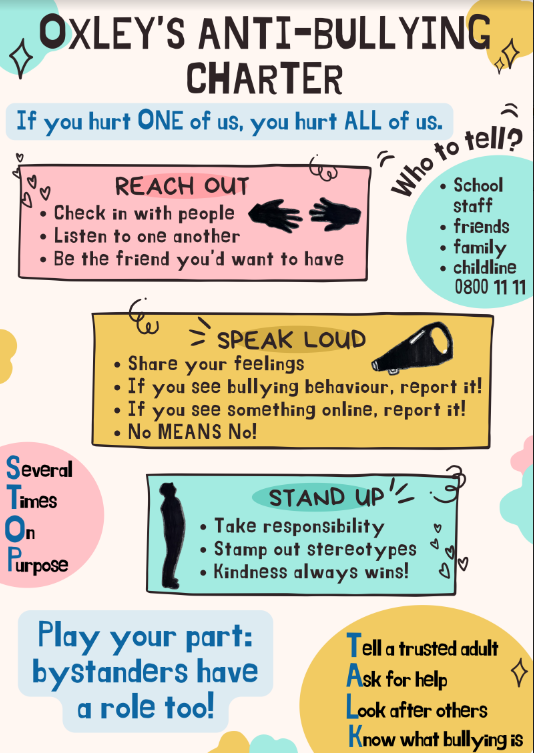
Types of Bullying
Bullying behaviour can take various different forms, including those listed below:
• Physical (including taking and damaging belongings, kicking, hitting,)
• Verbal (including name calling, threats, offensive remarks, taunting,)
• Psychological (including spreading rumours, gossiping, excluding from social groups)
• Cyber (including abusive texts or emails, deliberately excluding others online or in instant messaging services).
Friendship Fallouts
It is important to understand that bullying is not occasional falling out with friends, name calling, arguments, or when the occasional ‘joke’ is played on someone. Children do sometimes fall out or say things because they are upset. When occasional problems of this kind arise, it is not classed as bullying. It is an important part of a child’s development to learn how to deal with friendship breakdowns. These incidents are managed by all staff at school by following the school’s Behaviour Policy and PSHE curriculum to ensure that children’s ability to resolve conflict is developed and supported in an age-appropriate manner.
For more information about our commitment to Anti-Bullying, please click on the button below.
School Contacts:
Anti-Bullying Lead- Mrs Woolcock (Deputy Headteacher)
Anti-Bullying Lead Governor- Mrs Weaver (Vice Chair)
LGBTQ+ Trusted Adult – Miss Evans (PSHE Lead)
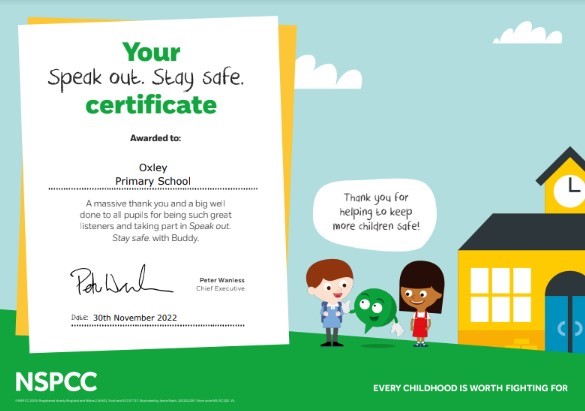

Everyone’s Welcome is an initiative and framework designed by Leicestershire County Council and Leicester City Council based upon the “No Outsiders” work written and produced by Andrew Moffat to teach the Equality Act (2010) to primary school children. The driving focus of the programme is that everyone is welcome and there are no outsiders in schools. As children grow up, difference can feel like a barrier to friendship. It is important that children feel proud of who they are and know they are accepted without judgement and not feel they should have to change to fit in. It is also important that our children understand that differences should be embraced and respected.
What does it look like at Oxley?
Everyone’s Welcome is taught from EYFS up to Year 6 through a selection of picture books. In Early Years and Years 1 and 2, picture books are used to show where characters are different but regardless of this, they are also friends and they play together. The aim is for the children to see themselves reflected in the texts we read.
As children move into Key Stage 2, they explore reasons why some people may feel left out. The scheme aims to prepare them in disagreeing with discrimination, challenging prejudice and showing acceptance.
No Outsiders is a whole school approach which uses assemblies and story books to teach children about all aspects of difference and diversity. These principles are promoted in the Equality Act (2010) and are in line with British Values.
What does the law say? The Equality Act 2010
Difference is protected under British Law. The Equality Act of 2010 has very clear aims providing guidance for schools. As public bodies, we need to:
- Have due regard for the need to eliminate discrimination
- Advance equality of opportunities
- Foster or encourage good relations between people who share a protected characteristic and those who do not
